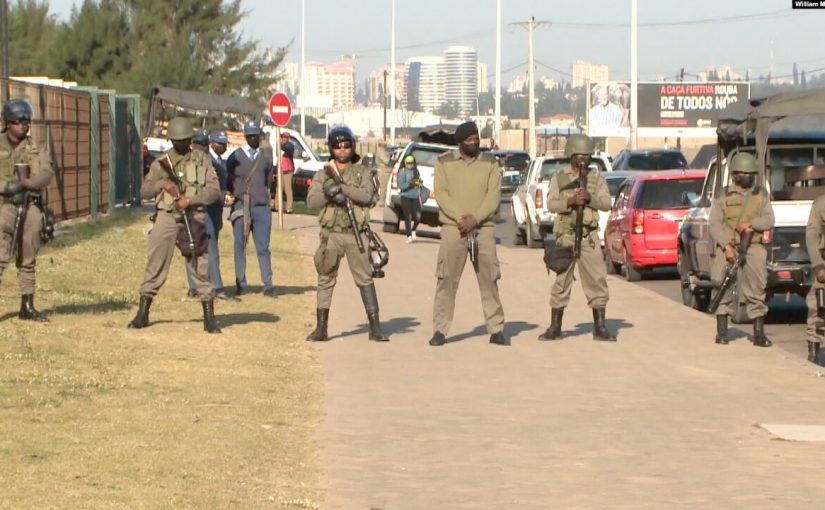Mozambique: Health Minister meets with Maputo hospital doctors to halt strike threat
Mozambique: Questions raised over proposed new Criminal Offences Investigation Branch

File photo: VOA
The Mozambican government has approved a proposal to review the police law, which provides for the creation of the Criminal Offences Investigation Branch (RIC), to tackle the new crime trend seen in the country, a development questioned in some circles.
“The revision proposal aims to adapt the Police Law of the Republic of Mozambique to the legal framework in force at the stage of the country’s socio-economic development, associated with the challenges of the dynamics that criminal phenomena currently impose on public order, security and tranquillity,” Council of Ministers spokesman Filimão Suaze said on Tuesday (12-03).
READ: Mozambique: Government proposes another criminal investigation unit
The proposal must go through the Assembly of the Republic, where the Minister of the Interior, Pascoal Ronda, has already argued that the review of Police laws will allow for better equipment for the corporation and better efficiency in the fight against organized crime.
Ronda said that “the process of reviewing the PRM and SERNIC Laws is underway with a view to strengthening the organizational and operational capacity suited to the challenges posed by transnational organized crime”.
Throwback
For lawyer and analyst Custódio Duma, the creation of the RIC could mean the reversal of the gains made with the creation of SERNIC, as well as the return of control of criminal investigation by the Ministry of the Interior.
Duma says that “it cannot be said that this institution will investigate new types of crimes, since the Public Prosecutor’s Office has within itself an office for preventing and combating corruption and has an office for preventing and combating major crimes, which includes not only terrorism, but also money laundering and other types of crime”.
“I cannot understand what the purpose would be,” says the lawyer.
Duma fears that any new branch of the police could create space for insubordination and conflict of competences, as SERNIC will not be dissolved. “Perhaps it could even create space for insubordination again, if not double subordination, because for certain crimes and specific situations we would have two entities working towards the same end”.
In turn, Renamo deputy António Muchanga believes that the proposal arises due to the government’s failure in criminal investigation and failure to accept international cooperation in combating crimes such as kidnapping.
“Why does the government run like the devil would from a cross when it comes to seriously asking for cooperation to combat kidnappings? Many serious countries have already proposed to help Mozambique in the fight against kidnappings, why does the Frelimo government refuse this cooperation?” the Renamo deputy asks.













Leave a Reply
Be the First to Comment!
You must be logged in to post a comment.
You must be logged in to post a comment.